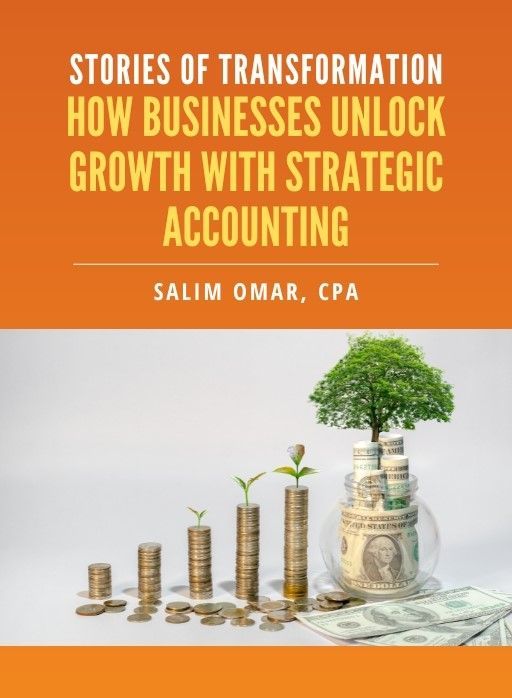Hiring Employee vs. Independent Contractor: Which is Better for My Business?

Ever scratch your head over the dilemma of hiring a full-time employee versus an independent contractor? Well, you are not alone. This decision could be the most important one you make in business as it can affect everything from your bottom line to your company culture.
Classification: Employees vs Independent Contractors
Employee:
An employee is a person who habitually works for you under your prescribed rules and schedule. You might willfully think of them as the dependable backboard of your operation. They're the people you depend on to take care of operations every day. You have a say in how, when, and where they work.
Independent Contractor:
An
independent contractor is more of a hired gun. They get the job done and then move on to another client and another project. They are their own agents, use their own tools, and decide their own hours. They typically work with several clients at any point in time.
Key Differences Between Employees and Independent Contractors
Control and Supervision:
With employees, you're the boss. You can tell them when to come in, what to wear, and how to perform their job. Want them to be there for that Monday morning 8 A.M. meeting? No sweat. Need them to follow a certain process? You got it. Contractors? You have limited control. They're their own bosses. Once they have accepted a project, they determine how to go about it without your supervision.
Compensation and Benefits:
By and large, the employees receive a steady paycheck and a comprehensive benefit package that will include health insurance, paid time off, and possibly even a 401(k). Alternatively, an independent contractor receives a negotiated fee for a specific time until the project is complete. Benefits are not part of the discussion.
Tax Implications:
With employees, you're on the hook to deduct payroll taxes, unemployment insurance, and workers' compensation from their paychecks. At the end of the year, you must report yearly earnings and state and federal income taxes withheld for each employee. Contractors, on the other hand, are responsible for paying their own taxes. At the end of the year, you will report their earnings on a 1099 form, which they use to file their income tax return.
Legal and Regulatory Compliance:
Employees are provided legal protections in the form of minimum wage laws, overtime rules, and anti-discrimination regulations. Contractors are not well protected but classifying them wrong could mean trouble with the IRS and the Department of Labor.
Pros and Cons of Hiring Employees
Pros:
- Greater control over work and quality: You're like the director of your business.
- They are more likely to hang around and be loyal.
- It's easier to build a strong team culture.
- Consistency is key - you know what you're getting day in and day out.
- They grow with your company, developing specialized skills attuned to your needs.
Cons:
- They cost more (think benefits and taxes).
- More paperwork and administrative headaches
- You have to navigate a maze of employment laws.
- Less flexibility—you're locked into providing work and pay, even during slow periods.
- Training can get expensive, especially in specialized positions or if you have a high turnover.
Pros and Cons of Hiring Independent Contractors
Pros:
- Flexibility to scale up or down as needed.
- You can save serious cash on benefits and taxes.
- Need a specialist? Contractors allow you to tap into expert skills.
- Less long-term commitment—perfect for project-based work or uncertain business conditions.
- You can test the working relationship before deciding to commit to full-time hires.
Cons:
- You can't control when they work or how.
- They might not be committed to your company in the long run.
- You may be exposed to misclassification penalties if you're not careful.
- You may receive spotty quality, especially when you're dealing with multiple contractors.
- There's a risk of murky intellectual property rights.
Factors to Consider in Making the Decision
So, how do you decide whether to hire an employee or a contractor? The following are some key factors to consider:
The Nature of the Work
Is it something ongoing or just a one-off project? An employee might be best If you're looking for someone to run your social media daily. However, if you are going to rebrand and need a designer for a logo or to create a brand new website, a contractor could be perfect.
Your Budget
What is your budget like? Are you able to afford the long-term costs of an employee? Remember, it's more than a salary; it means benefits, taxes, and those hidden costs.
Legal and Compliance Considerations
Ready to take on the potential legal and compliance risks that go along with employees? It is kind of like taking a pet—fulfilling, but with obligations.
Company Culture
How important is creating a united team culture in your business?
Whether you need an employee or an independent contractor will depend on the size of your business, the type of work you need performed, your budget and the amount of accounting and management you are prepared to do or hire someone else to do.
When you want a solid team for ongoing work that requires a long-term commitment and understanding of your business, then hiring an employee is the way to go.
Contractors are useful when flexibility and specialized skills are in order. They are best for work with an identifiable end date or when you need an infusion of expert knowledge into your business temporarily.
How a CPA Can Help You With Adherence to Accounting and Tax Obligations of Employees and Independent Contractors
A Certified Public Accountant could be the solution you’ve been looking for. They can guide you in your employment decision and assist you in the necessary bookkeeping, accounting and tax work required. To that end, they can help:
Businesses set up and manage employee payroll and payroll taxes. A CPA can ensure timely and accurate accounting for income and benefits earned and pay the correct taxes owed in each employee’s paycheck. Employers must remit taxes for payroll, federal and state income earned, Social Security, and Medicare. Accurate calculations, compliance with payroll tax regulations, and timely filing are essential to avoid penalties and interest charges.
Independent Contractors set up and manage of their bookkeeping and accounting for contractor income and expenses, filing quarterly estimated taxes and filing federal and state income taxes at the end of the year
Advise employers and independent contractors about changes in tax law and regulations. Knowing of changes in advance helps businesses and contractors plan wisely.
Arrange a call for a complimentary consultation with one of our accounting advisors at Straight Talk CPAs. We’ll advise you on the pros and cons of your hiring decision and discuss the
CPA services we can provide to help you achieve your business goals.
Free eBook:
Stories of Transformation


Salim is a straight-talking CPA with 30+ years of entrepreneurial and accounting experience. His professional background includes experience as a former Chief Financial Officer and, for the last twenty-five years, as a serial 7-Figure entrepreneur.




